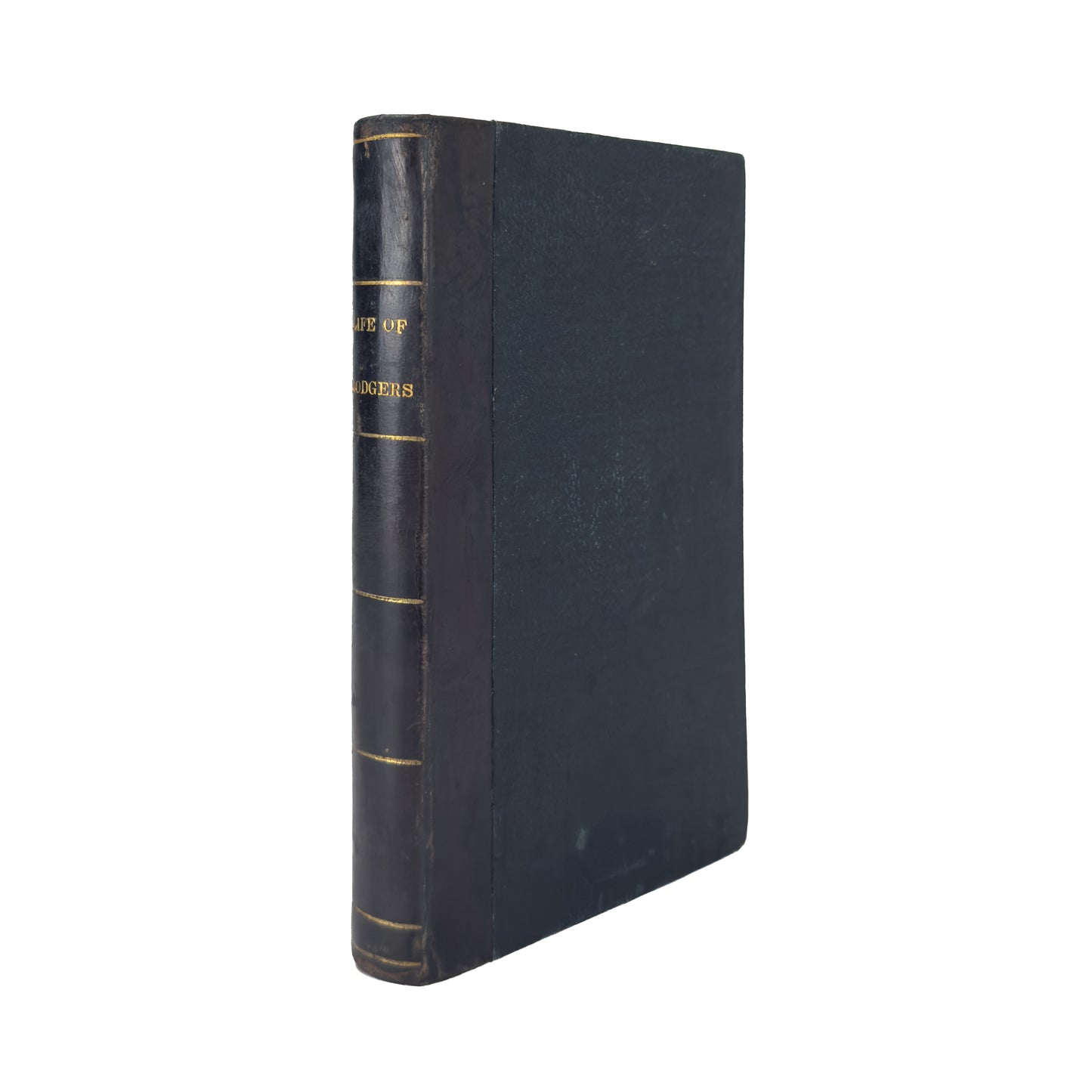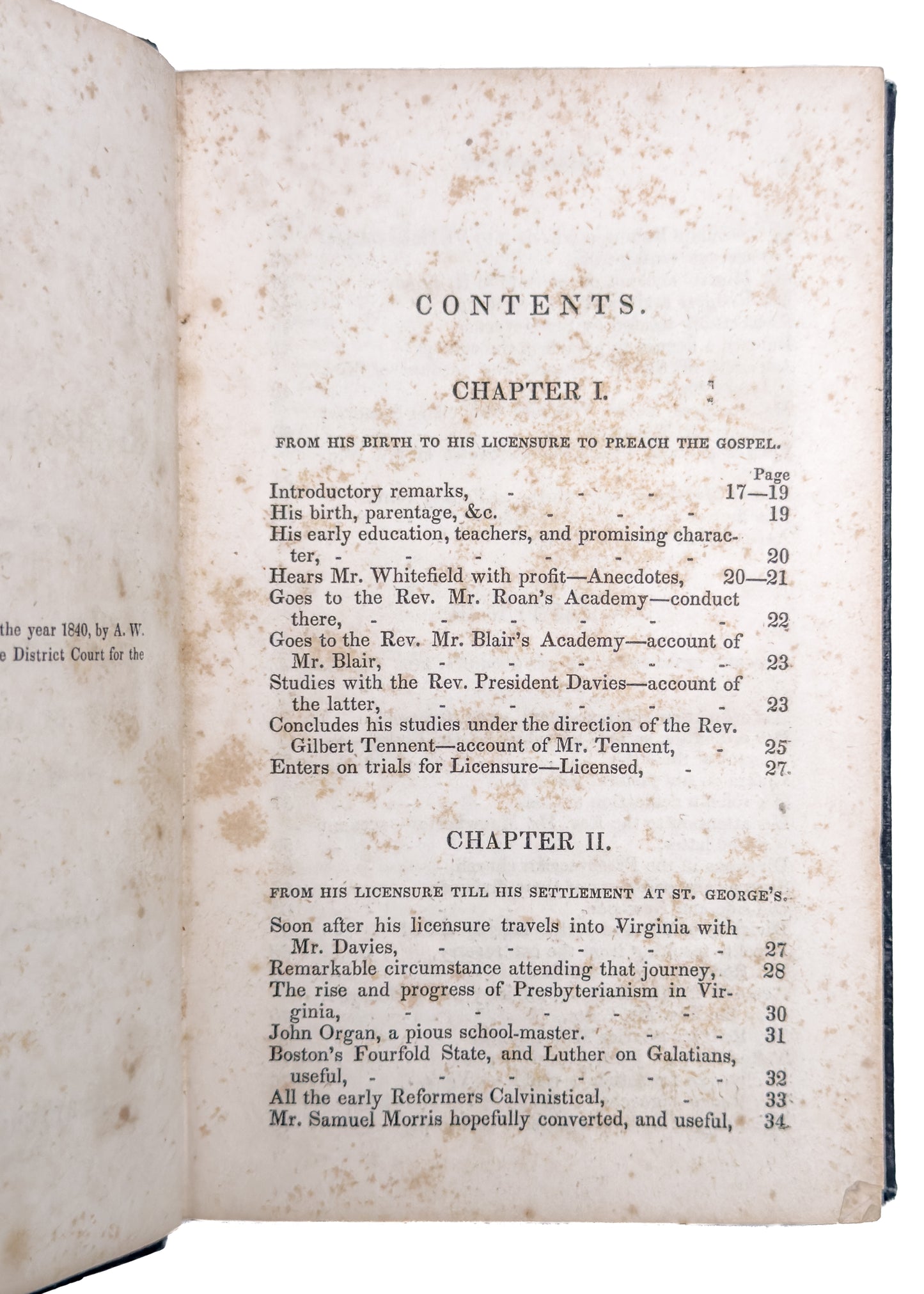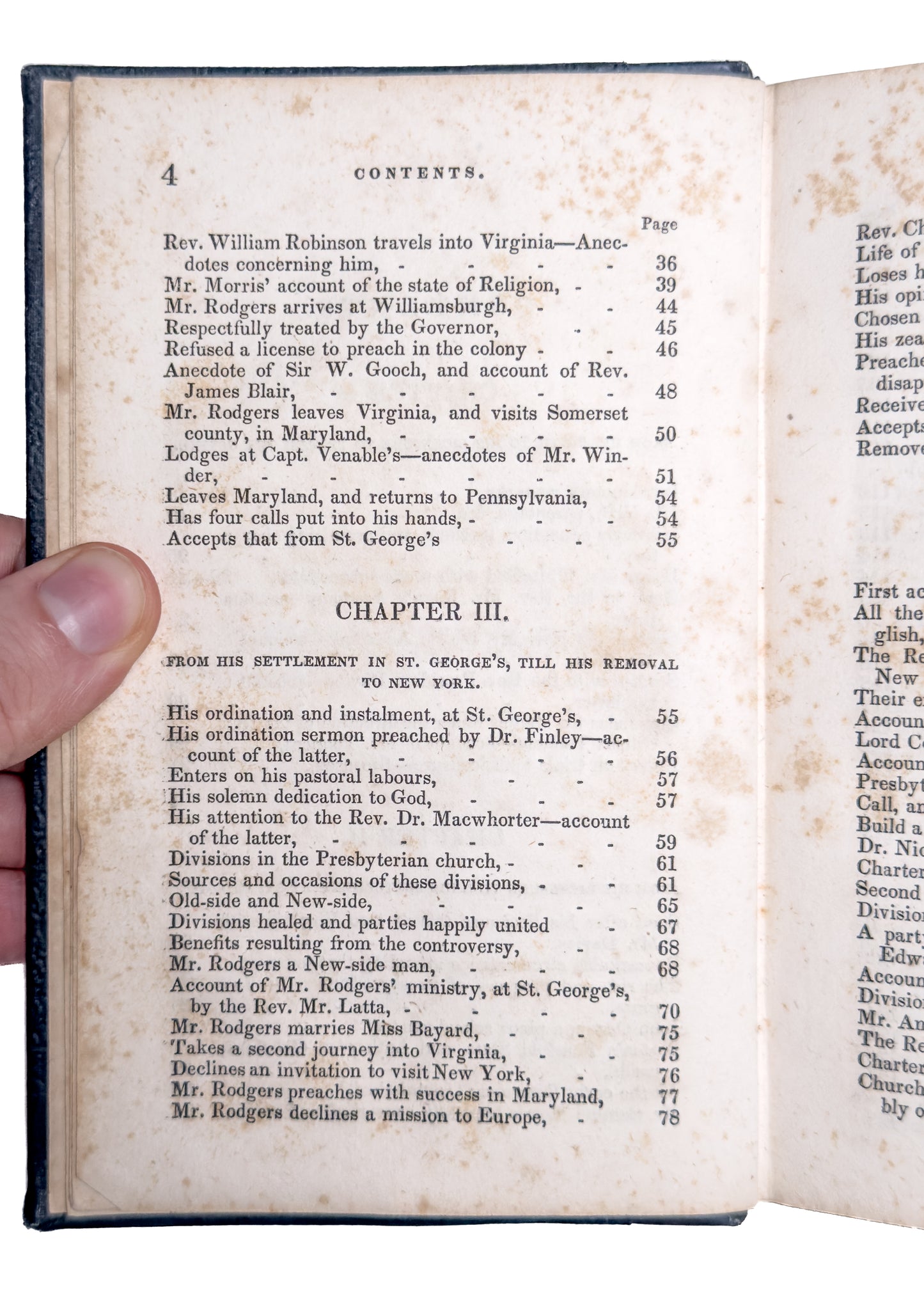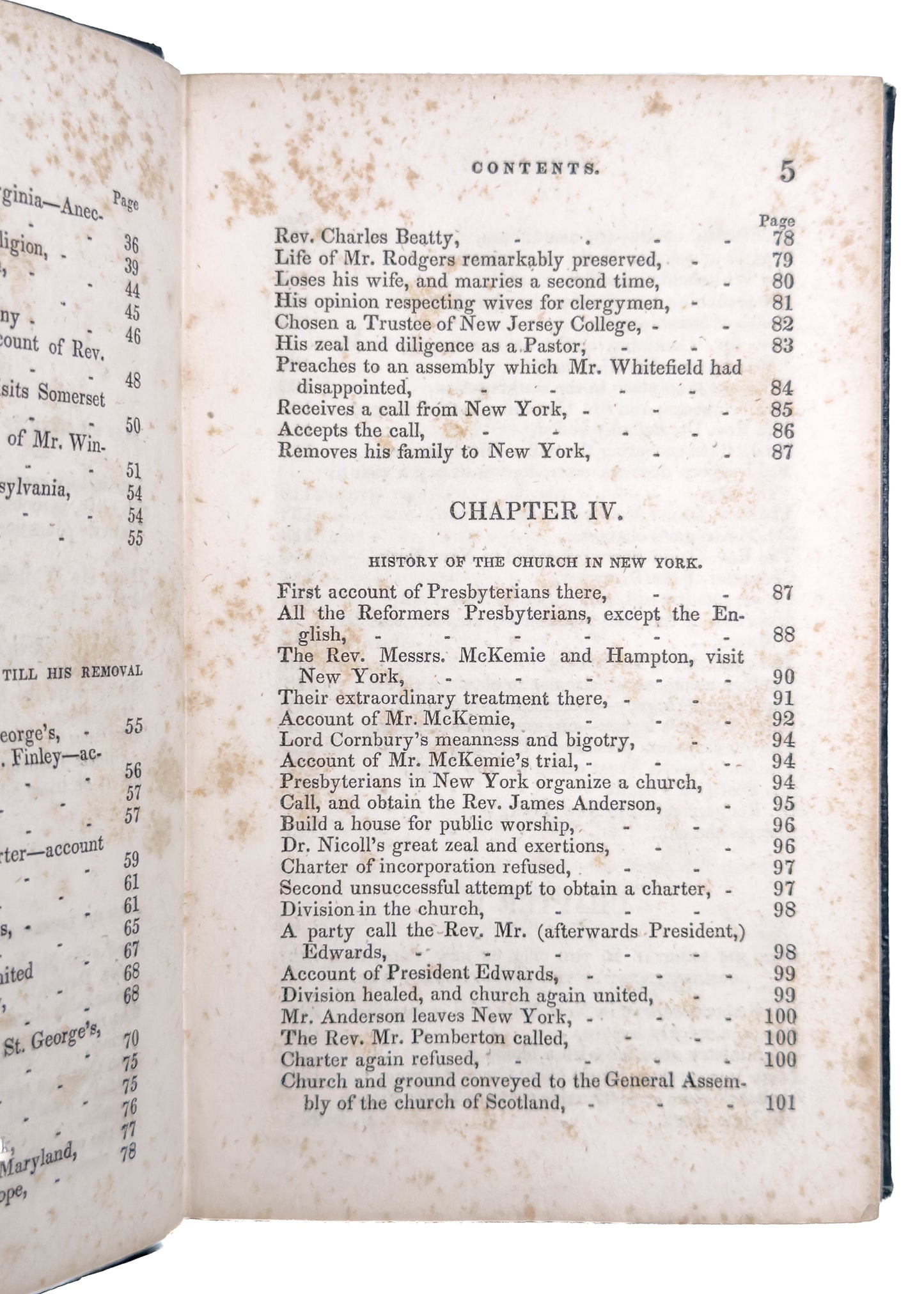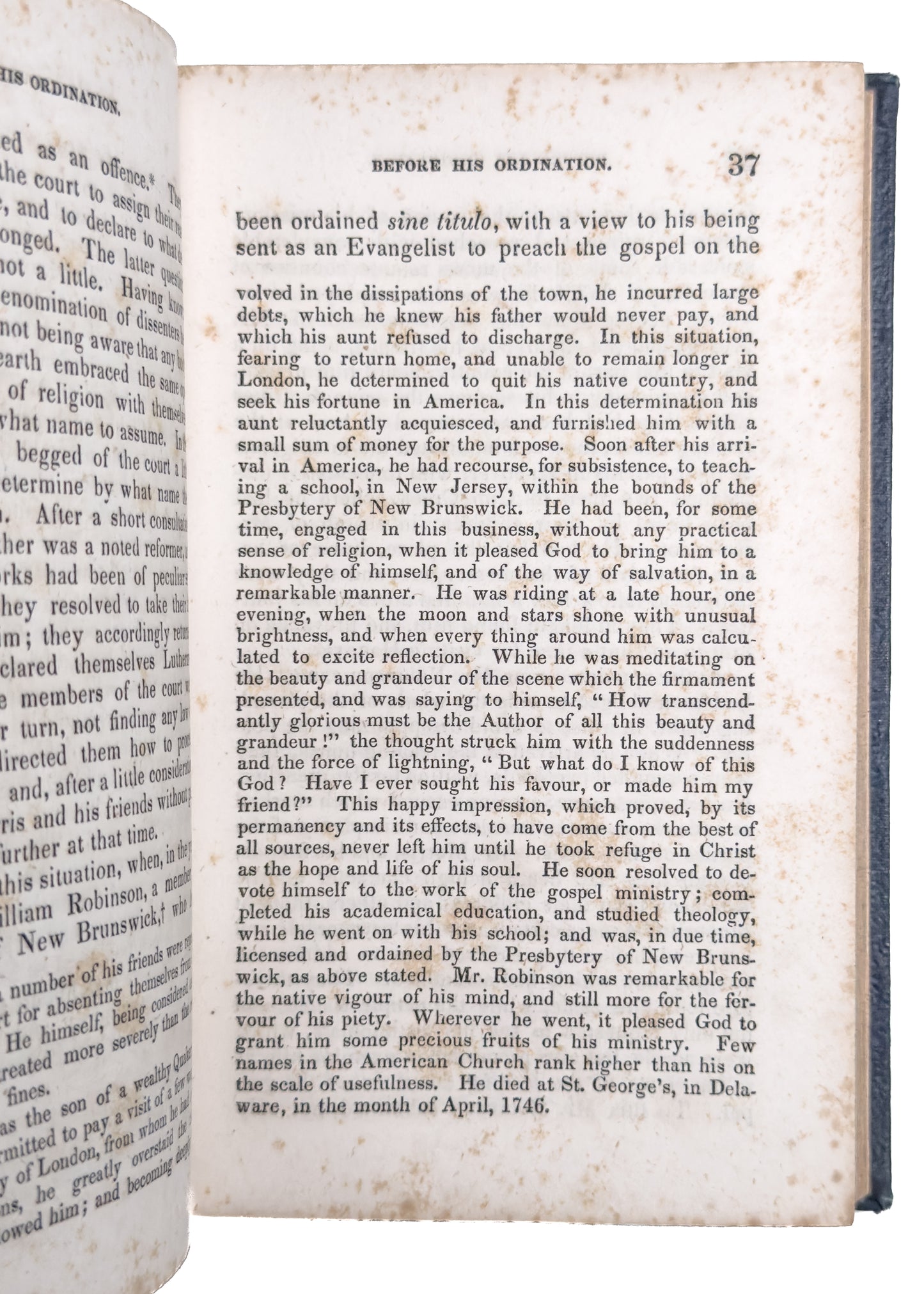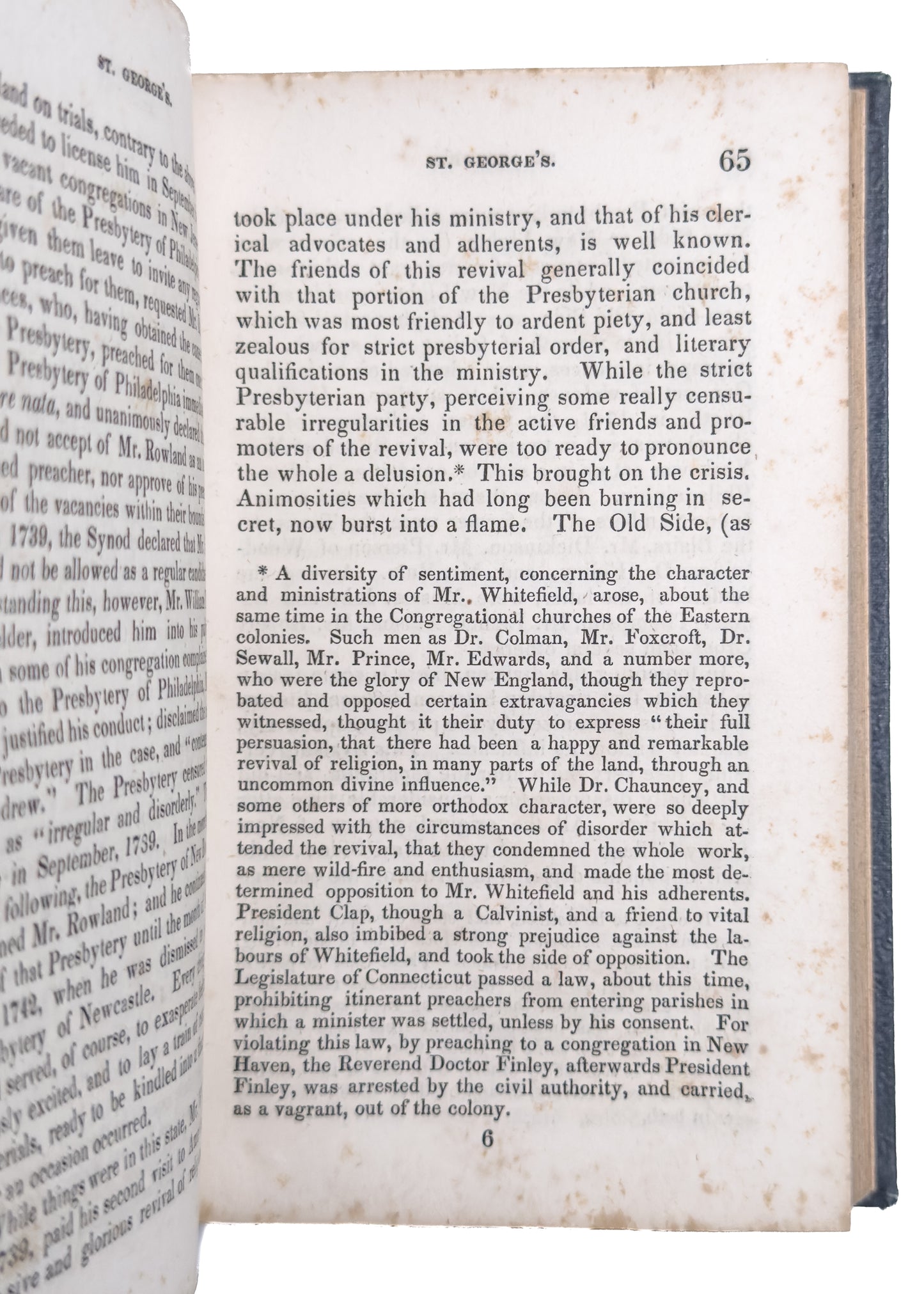Specs Fine Books
1840 JOHN RODGERS. Important Great Awakening & American Revolutionary War Presbyterian Memoir.
1840 JOHN RODGERS. Important Great Awakening & American Revolutionary War Presbyterian Memoir.
Couldn't load pickup availability
Superb memoir of Great Awakening and American Revolution era Presbyterian divine, John Rodgers [1727-1811].
Converted under George Whitefield as a 12-year-old boy during the 1739 revivals in Boston [see the account below], Rodgers then and there committed that if he ever were allowed by God, he would give himself to the ministry. He studied theology while serving under revivalists Gilbert Tennent and Samuel Blair. Afterwards, he was recommended to Samuel Davies and went as Davies' assistant to plant Presbyterian churches in Virginia.
By 1765 Rodgers reputation for godliness and as a man of deep experimental piety and searching preaching led to a call to New York City to take charge of Brick Presbyterian Church, which would later become First Presbyterian. There, seasons of deep and durable revival, which had before begun under Blair, continued and were strengthened.
It was there that, in 1770, before he would die while still in America, George Whitefield was preaching for John Rodgers. They were together in a carriage and Rodgers thought to ask a question he had always wondered. When he was in those meetings in 1739, where he found Jesus under Whitefield's preaching, it happened that he had brought a lantern with him. And so under the sway of the Spirit's working in his heart was he during Whitefield's sermon that he dropped it, forgetting to hold it under the spiritual influence. With a great crash, it disturbed the sermon for some minutes. And Whitefield ceased preaching while order was reassembled. Rodgers asked if Whitefield remembered, some 31 years earlier when a young boy had disturbed his meetings by the breaking of a lantern. Whitefield responded that he not only did, but often wondered what had happened to the boy. Rodgers informed him that it was him and that he was converted to Christ that day. Whitefield began to weep openly and said nothing moved him more than when he found not only that a person had been converted to Christ, but that God had called them to preach the Gospel of Jesus.
About this time, Rodgers helped lead the Revolutionary charge of Presbyterian pulpits. preaching fervently in favor of military revolt and against the repression of the British. Once the Revolution had begun, he served as a Brigade Chaplain in the Continental Army of the United States. After the war he returned to New York City.
As the new American Presbyterian church began to emerge after the Revolution, the Synod of New York and Philadelphia appointed a committee to compose the new Presbyterian Church Constitution. The committee included John Rodgers, John Witherspoon, George Duffield, and 7 others. By 1788, the Constitution was completed, adopted, and copies were ordered to be printed for distribution. In 1789, the First General Assembly of the Presbyterian Church in the United States of America was held in Philadelphia with its moderator none other than Rev. John Rodgers. His sermon, The Divine Goodness Display'd in the American Revolution is one of the most important sermons preached relative to the end of the War.
Miller, Samuel. A Memoir of the Rev. John Rodgers, D.D. Late Pastor of the Wall-Street and Brick Churches, in the City of New York. Philadelphia. Presbyterian Board of Publication. 1840. 240pp.
Good + in quarter black calf with faux morocco cloth on boards. Some scattered foxing, but generally a solid, crisp, and attractive example.
Share
